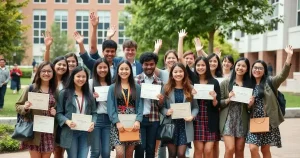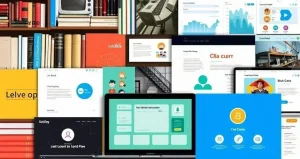Anúncios
Lifelong learning is more than a buzzword—it’s a mindset that keeps you growing, curious, and ready for new opportunities at every stage of life. It’s about choosing to learn not because you have to, but because it makes you stronger, smarter, and more fulfilled.
From mastering a new skill to exploring passions outside of work, lifelong learning opens doors you didn’t even know were there. It helps you stay relevant in a changing world while adding depth and excitement to your personal journey.
If you’re ready to see how continuous growth can reshape your future, keep reading and discover why lifelong learning might be the most powerful investment you’ll ever make.
Anúncios
What Is Lifelong Learning?
Lifelong learning refers to the ongoing, voluntary, and self-motivated pursuit of knowledge for personal or professional reasons. Unlike traditional education that often ends with a diploma, lifelong learning is continuous, evolving as your interests, goals, and environment change.
It goes beyond classrooms, extending into online courses, workshops, mentorship, reading, hobbies, or even experiences that teach practical lessons. This mindset encourages people to embrace change, seek improvement, and never stop exploring new ideas.
The Importance of Lifelong Learning in a Modern World
The rapid pace of technological and societal change makes lifelong learning essential. Today’s skills can quickly become outdated, and continuous learning ensures you stay competitive. For professionals, it means remaining valuable in the job market. For individuals, it fosters growth, creativity, and resilience.
Anúncios
Beyond career, lifelong learning enriches personal life. It builds cultural awareness, sharpens critical thinking, and promotes mental agility. It’s not about chasing certificates—it’s about embracing the mindset that you can always learn something new.
Benefits of Lifelong Learning
Engaging in lifelong learning offers benefits that impact nearly every aspect of life:
- Career Advancement: Learning new skills improves employability, opens doors to promotions, and increases earning potential.
- Adaptability: Continuous learning equips you to thrive in industries affected by rapid innovation and change.
- Personal Fulfillment: Exploring new hobbies and interests brings joy, confidence, and a sense of purpose.
- Mental Health: Stimulating the brain through learning keeps the mind sharp and supports long-term cognitive health.
- Networking: Courses, workshops, and communities connect you with like-minded people who share your passions.
Examples
Lifelong learning can take many forms, depending on individual goals. Some common examples include:
- Online Courses: Platforms like Coursera, Udemy, and edX offer courses on virtually any subject, accessible anytime.
- Professional Certifications: Expanding expertise through industry-recognized certifications enhances credibility.
- Workshops and Seminars: Short-term events provide practical, hands-on skills and networking opportunities.
- Self-Directed Learning: Reading books, watching educational videos, or listening to podcasts fuels curiosity.
- Hobbies and Skills: From cooking to photography to learning a new language, hobbies are powerful avenues for growth.
The Role of Technology
Technology has made lifelong learning more accessible than ever. With digital platforms, anyone can learn at their own pace, from anywhere in the world. Mobile apps, online classrooms, and virtual communities connect learners globally, offering interactive and flexible experiences.
This democratization of knowledge means that education is no longer limited by geography or financial barriers. From coding bootcamps to language apps, technology empowers everyone to pursue continuous learning tailored to their needs and goals.
Lifelong Learning in the Workplace
For businesses, fostering a culture of lifelong learning is essential. Employers benefit when their teams continuously upgrade skills, as it drives innovation, productivity, and adaptability. Many companies now offer training programs, mentorship opportunities, and tuition reimbursement to support professional growth.
Employees who embrace lifelong learning demonstrate initiative and flexibility, making them more valuable. It also enhances job satisfaction, as individuals feel empowered to take control of their development and career path.
How to Embrace Lifelong Learning in Daily Life
Incorporating lifelong learning into your routine doesn’t have to be overwhelming. Small, consistent actions can make a big difference. Here are some strategies:
- Set Learning Goals: Define what you want to achieve, whether it’s mastering a skill or exploring a new interest.
- Create a Routine: Dedicate a few minutes daily or weekly to study, read, or practice.
- Stay Curious: Ask questions, seek new perspectives, and challenge assumptions.
- Use Resources Wisely: Take advantage of free and paid resources, from libraries to online platforms.
- Reflect and Apply: Evaluate what you’ve learned and put it into practice for lasting growth.
Overcoming Barriers to Lifelong Learning
Despite the benefits, some people hesitate to pursue lifelong learning. Common barriers include lack of time, financial constraints, or fear of failure. Overcoming these challenges requires mindset shifts and practical solutions.
For time constraints, try micro-learning—small, focused lessons you can complete in minutes. For financial concerns, explore free courses and community resources. And for fear of failure, remember that mistakes are stepping stones to mastery. Embracing challenges is part of the learning journey.
Real-Life Examples
History is full of people who embodied lifelong learning. Leonardo da Vinci, for example, pursued knowledge in art, science, engineering, and anatomy. In modern times, professionals who constantly re-skill often lead innovation in their industries. Everyday learners—like retirees picking up new hobbies or workers earning degrees mid-career—show that growth has no age limit.
These examples prove that anyone can benefit from continuous learning, no matter where they are in life’s journey.
The Future of Lifelong Learning
As industries evolve, the demand for lifelong learning will only increase. Skills like problem-solving, digital literacy, and emotional intelligence are becoming essential. Employers and educators are shifting focus toward continuous development rather than one-time qualifications.
The future promises even more opportunities through artificial intelligence, virtual reality, and personalized learning experiences. Embracing this future means staying open to change and committed to growth.
Final Thoughts
Lifelong learning is more than a concept—it’s a mindset that empowers you to grow, adapt, and thrive. By embracing curiosity and continuous improvement, you not only enhance your career prospects but also enrich your personal life.
Each step you take toward learning is an investment in your future potential.
Start today, no matter how small. Pick up a book, join an online class, or explore a new hobby. The journey of lifelong learning is endless, and each moment spent growing unlocks new opportunities waiting just around the corner.







